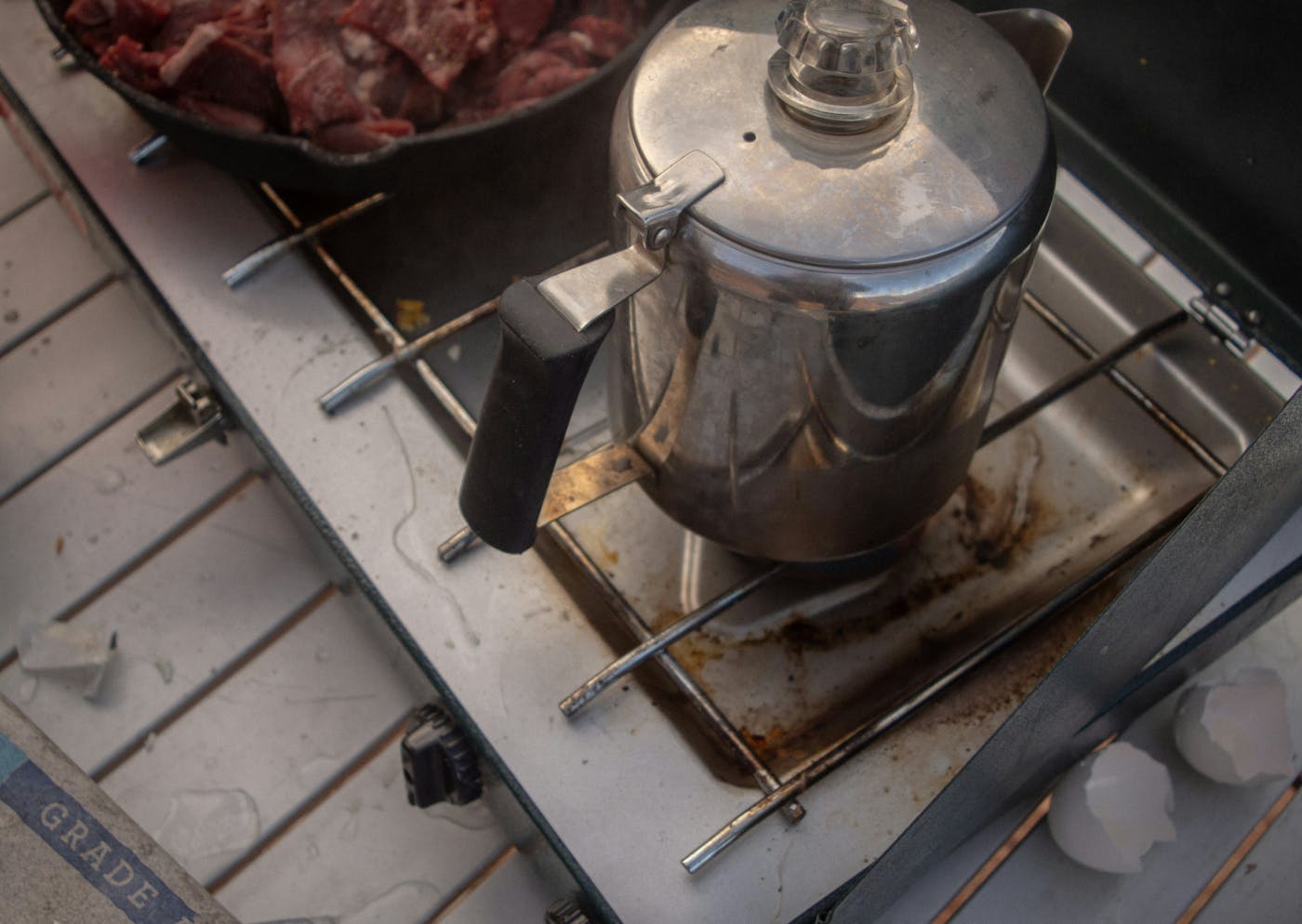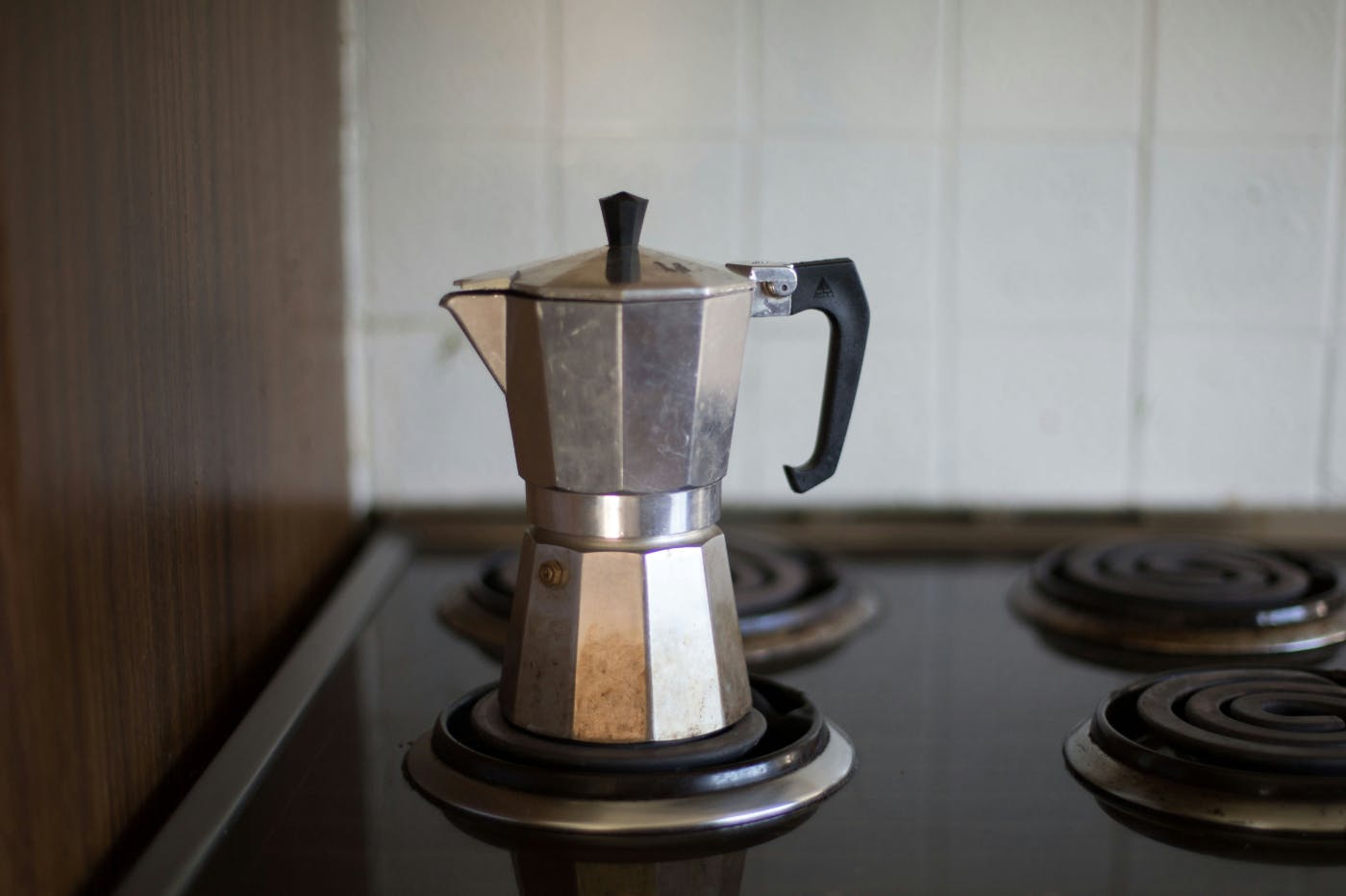
We live in a culture that glorifies the new. New phones, new cars, new ideas. And, yes, new people. Youth is praised as inherently superior—full of energy, innovation, and fresh perspectives.
I have a coffee percolator. It’s red—well, it was red. Now, most of the red has faded away, revealing the shiny steel underneath. It makes the strangest noises when it’s on—deep, gurgling moans that sound like an old goblin dying painfully in my kitchen. It’s been with me for years, traveling almost as much as my iron skillet. It’s old, it’s hard to clean, but it makes familiar coffee.
Not great coffee, not lousy coffee—just good coffee. The kind that earns an approving nod. The kind that stays consistent. The kind I don’t have to think about.
And yet, every time someone sees my percolator, they ask the same question: “Jesus, this thing is ancient. Why don’t you get a new one?”
Right there, in my kitchen, in the percolator’s domain, they said this. They didn’t even care about its feelings! My poor, faithful percolator stood there, and I swear I heard it whisper, “Awwww, really?”
It bothered me. Not because I don’t understand the appeal of something new, but because I looked at my percolator and thought about our history together—all the work it has put in, all the weird actor housing I have been thrust into over the years, and through it all, my constant. My percolator. Even in the most unfamiliar surroundings, I could count on it. It never abandoned me.
Okay, maybe I’m putting too much on the percolator. But isn’t that what we do with old, long-time friends? We don’t just throw them out. Would this person look at my grandpa and say, “Wow, he’s old. Let’s go out back and shoot him and then go get a new one”?
Because that’s how it felt. Like, loyalty meant nothing. Like history could be discarded just because something was a little worn.
Because new is always better, right?
I’m not so sure about that.
The Modern Obsession with the New
We live in a culture that glorifies the new. New phones, new cars, new ideas. And, yes, new people. Youth is praised as inherently superior—full of energy, innovation, and fresh perspectives. Businesses chase after younger employees, eager for their supposed adaptability. Industries glamorize youth, reinforcing the idea that if something is old, it’s past its prime.
But here’s the kicker: new doesn’t mean proven. A fresh-out-of-the-box espresso machine might look impressive, but until you’ve tested it, you don’t know if it makes good coffee. The same goes for experience.
I felt this firsthand as an actor. As I got older, I couldn't move as quickly. The physical comedy I once mastered became harder to pull off. And for a while, I didn’t know who I was anymore. My entire identity as a performer had been built on a certain kind of role—the energetic, comedic, physically demanding parts that relied on agility and quick reflexes. I started to worry: If I can't do what I used to do, will I still be valuable?
Then, something unexpected happened. I started getting cast in different roles—statesmen, elders, characters with depth and authority. Directors recognized that while my physical abilities had shifted, my command of language, my understanding of character, and my ability to navigate complex emotions had only deepened. One director, in particular, knew I handled Shakespeare well, so they cast me in roles that required a presence and gravitas that a younger actor simply couldn’t bring yet.
But before that transition, there was fear. A real, palpable worry that I would be tossed aside. That is because I could no longer perform in the same way I once did, and I would be deemed useless.
That’s what happens when we idolize newness. We risk forgetting that experience transforms rather than diminishes us. Youth has its strengths, absolutely—but so does time, resilience, and the ability to evolve.

Does Loyalty Still Matter?
The more I thought about it, the more I realized this wasn’t just about my percolator—it was about loyalty. The idea that something, or someone, is worth keeping around because of the history, the commitment, the proven reliability. But do we even value loyalty anymore?
Take the workplace, for example. Businesses used to prize long-term employees, the ones who stuck around for decades, who understood the company inside and out. But now? If a fresh college grad can do the same job for less money, the old employee often finds themselves cast aside. Years of dedication, knowledge, and experience—gone in favor of something new and cheaper.
Is that good business? Maybe. Is it right? That’s another question entirely.
Loyalty, whether to an old appliance, an employee, or a friend, isn’t just about nostalgia. It’s about recognizing worth. It’s about understanding that time, effort, and experience add value that can’t always be measured in dollars or efficiency. Just because something—or someone—has been around a while doesn’t mean they’ve lost their usefulness. If anything, they’ve proven their reliability over and over again.
So why are we so quick to discard the loyal in favor of the new?
Take the workplace, for example. Businesses used to prize long-term employees, the ones who stuck around for decades, who understood the company inside and out. But now? If a fresh college grad can do the same job for less money, the old employee often finds themselves cast aside. Years of dedication, knowledge, and experience—gone in favor of something new and cheaper.
Is that good business? Maybe. Is it right? That’s another question entirely.
Loyalty, whether to an old appliance, an employee, or a friend, isn’t just about nostalgia. It’s about recognizing worth. It’s about understanding that time, effort, and experience add value that can’t always be measured in dollars or efficiency. Just because something—or someone—has been around a while doesn’t mean they’ve lost their usefulness. If anything, they’ve proven their reliability over and over again.
So why are we so quick to discard the loyal in favor of the new? Think about it: An old percolator, like an experienced professional, has been through it all. It’s seen different kitchens, endured years of use, and adapted to changing circumstances. It doesn’t come with a manual anymore because it doesn’t need one. It just works.
Experience isn’t just about time spent doing something—it’s about accumulated wisdom. It’s about knowing the shortcuts, the pitfalls, and the nuances that aren’t in any training manual. It’s about having a gut instinct honed by years of trial and error. You can’t teach that in a seminar. You can’t fast-track it. You have to earn it.
This isn’t to say that young professionals don’t bring value—they absolutely do. Fresh perspectives and new ideas are necessary for growth. But there’s a reason experienced professionals are often the ones steering the ship. They’ve seen storms before. They know what to do when the unexpected happens.

Knowing Your Value and Claiming It
At some point, experience isn’t just something you have—it’s something you own. But recognizing that can be a challenge. Many people with years of experience still feel the need to prove themselves, as if time spent mastering their craft isn’t enough unless someone else validates it.
There comes a time when you have to stop seeking that validation and claim your worth. To say, I know what I bring to the table, and I won’t let that be undervalued.
This isn’t arrogance—it’s self-awareness. When you’ve spent years refining your skills, when you’ve built a track record of success, when you’ve made mistakes and learned from them, you reach a point where you don’t just deserve respect—you’ve earned it.
And yet, so many hesitate to say it. To demand fair compensation. To push back against being overlooked. To walk into a room and stand tall in the authority that experience grants.
If an old percolator could talk, it wouldn’t apologize for its scratches and dents. It wouldn’t try to convince anyone that it still brews a solid cup of coffee. It would simply percolate—because that’s what it does, and it does it well. There’s something to be learned from that.
Kintsugi: Mistakes as the Gold of Experience
The Japanese art of Kintsugi is a perfect metaphor for experience. Instead of discarding broken pottery, artisans repair the cracks with gold, making them part of the story rather than something to be hidden. The object becomes more valuable because of its imperfections, not in spite of them.
Experience is the same way. The wear and tear—the lessons learned, the mistakes made, the setbacks overcome—add value. They don’t diminish it.
But here’s something we don’t talk about enough—mistakes are the gold. Young people are often afraid to make mistakes, or if they do, they hesitate to own them. Sometimes, they let those mistakes crush them instead of seeing them for what they really are: the material that makes them stronger. Every mistake, every misstep, and every failure is an opportunity to learn, to grow, to gain the kind of wisdom that only comes from trying, failing, and trying again.
The cracks filled with gold aren’t just about survival—they’re about transformation. The strongest people, the most capable professionals, the best leaders—they’ve all had their share of mistakes. The difference is that they didn’t let the mistakes define them. They let them refine them.
Experience is the same way. The wear and tear—the lessons learned, the mistakes made, the setbacks overcome—add value. They don’t diminish it.
Yet, we live in a society that often tries to sand down those imperfections, to hide the signs of age. But why? Isn’t the proof of resilience something to be admired? Isn’t overcoming failure something to be celebrated?

Summing Up: The Percolator Still Works (And So Do You)
So, no, I won’t be getting rid of my percolator anytime soon. It still works. It still makes good coffee. And just because something—or someone—has been around for a while doesn’t mean they’re obsolete.
Loyalty, experience, and the wisdom gained through mistakes all add up to something invaluable. We live in a world that often prioritizes what’s new, what’s fast, and what’s shiny, but real value comes from what has been tested, what has endured, and what has proven itself over time.
We should honor the things—and the people—that have been through the fire and come out stronger. Whether it's an old percolator, a seasoned professional, or the lessons learned through years of mistakes, experience is worth more than we often give it credit for.
So, the next time you’re tempted to discard something—or someone—because they show signs of wear, take a moment. Consider the value in those marks, those years, those well-earned cracks filled with gold. New has its place, sure—but tested, proven, and experienced? That’s where the real worth lies.
Now, if you’ll excuse me, my old percolator just finished another good pot of coffee.

